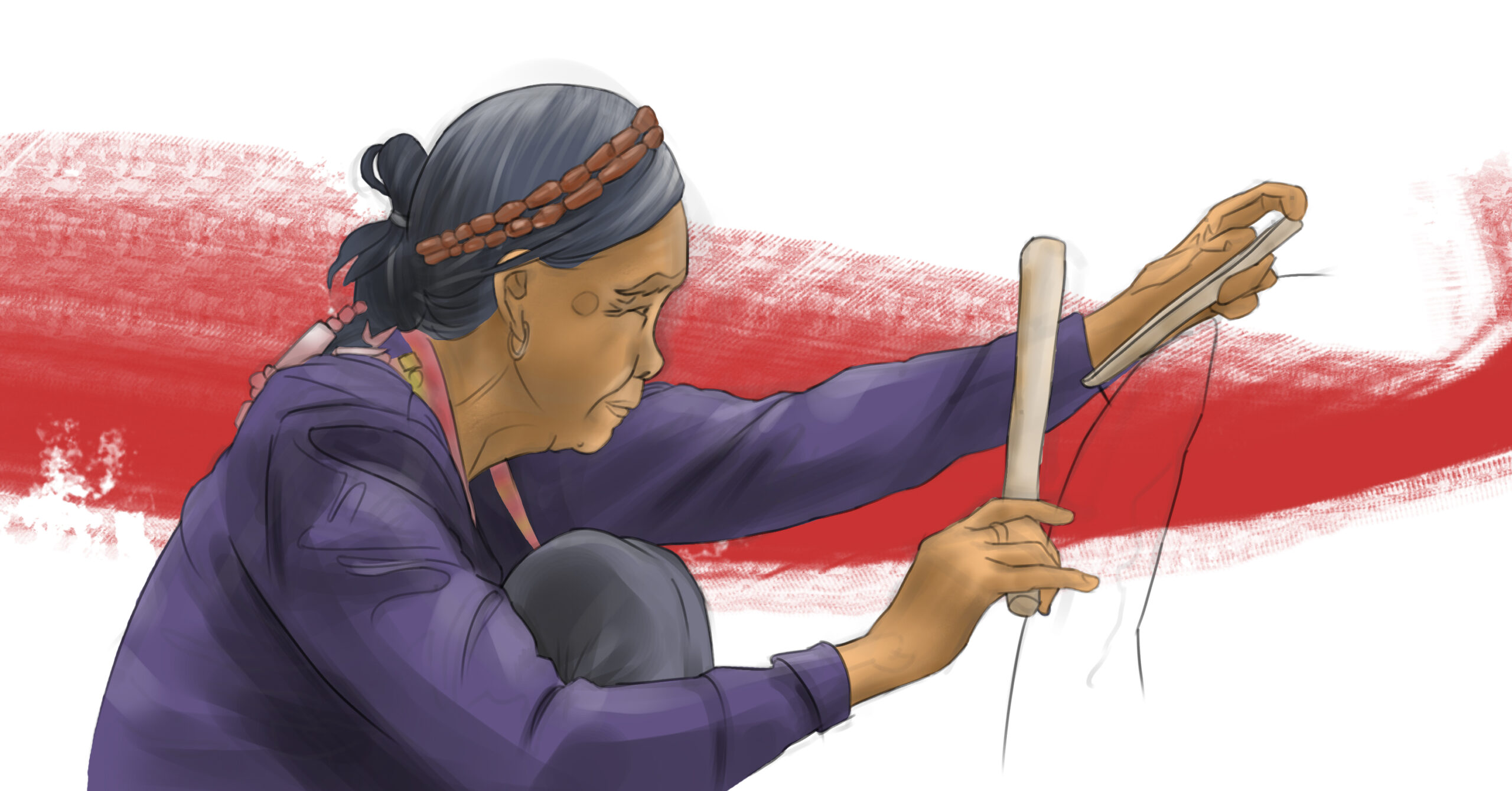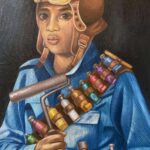What happens when content creators and creatives make work based on Indigenous Cultures? Let us take a look at several incidents concerning the popular Filipino tattoo icon Apo Whang-od and various local and international entities. For several years, people close to the tattoo icon, government officials, cultural workers, and ordinary netizens have pointed out trespasses into the customs and laws that protect the Indigenous Peoples from exploitation. This article will touch on topics such as internet culture, indigenous knowledge and traditions, intellectual property rights, and many more.
Apo Whang-od Oggay is a Filipino tattoo artist from Buscalan, Kalinga, Philippines. She is considered to be one of the oldest “mambabatok” or traditional tattoo artist of the Butbut Tribe. Whang-od is recognized as a “living vessel of a traditional practice” by the National Commission for Culture and the Arts. The NCCA also conferred to her the prestigious Dangal ng Haraya Award and was nominated for the National Living Treasures Award (Gawad ng Manlilikha ng Bayan) to honor her contributions to Filipino culture and indigenous practices.
Many Filipinos consider Whang-od as a popular cultural icon and have made photographs, artworks, and tattoos based on her image. She is a sought after personality for interviews, documentaries, and various online content. People trek to her location to see her.
Issues about exploitation of Whang-od and her indigenous knowledge became a hot topic for netizens when she was featured in a grand exhibition in Manila in 2017. Recently, her grandniece and apprentice Gracia Palicas complained about an alleged scamming and exploitation of a popular social media vlogger Nas Daily.
Apo Whang-od’s grandniece wrote in a now deleted Facebook post accusing Nas of “scamming” and exploiting indigenous culture by featuring an online course on ancient tattoo art without the famed tattooist’s informed consent. She went on to say that certain people may be taking advantage of their culture for personal gains and pleaded with the public to help her sort out the trespasses into their customs and traditions. It was revealed that the famed tattooist may not have understood the contents of a contract prepared and translated by representatives of the popular vlogger.
Reactions to the post became viral and netizens were soon sharing their opinions and commentary across several social media platforms. Gracia Palicas eventually deleted the original post after a representative from Nas Daily asked her to take down the post in exchange of removing Whang-od from Nas Academy web pages. Based on a screengrab from Whang-od Academy, the course entitled “Learn the Ancient Art of Tattooing” will introduce participants to “learn a 1000-year old art form from the last Kalinga tattoo artist in the world. Whang-od will reveal all her rituals, tools, and methods for making traditional tattoos.”
Palicas acknowledged that the online course may have good intentions of sharing “our culture with the next generation.” She went on to express her concern that some people from her village worry about profiting and exploitation of their art and culture. A day after her post became viral, the online platform Nas Academy released a video showing Whang-od affixing her thumbprint on a piece of what seemed like a contract – a response to the claim of Gracia Palicas the famed tattoo artist was scammed. Heated debate online ensued.
Is this a case of simple misunderstanding or an indication of deeper problems that have been building up through the years? In my perspective it shows a need of understanding of Kalinga and Filipino Indigenous culture in general. The popular vlogger may have had conversations with Whang-od and her family to create an online course but many tattoo designs, methods and techniques belong to the Indigenous Peoples of Kalinga collectively. Although Whang-od has her own set of original designs that she can claim for herself, the art of traditional tattooing is derived from generations of Kalinga ancestors. This forms the framework for their Indigenous Knowledge Systems and Practices. Individual tattooists from the tribe like Whang-od may practice the art form individually and develop their original designs, to acquire designs claimed by the IP community and their methods will require the approval of the IP community as a whole and facilitated by government officials.
While the indigenous peoples have their laws and customs, statutes also exist to protect the rights of the IPs, one of them is the Republic Act No. 8371 or the Indigenous Peoples Rights Act (IPRA) and its Implementing Rules and Regulations. Series of ardous registrations and consultations are required to obtain Free, Prior and Informed consent. An agreement between the creator, and the Indigenous Community is paramount. National Commission on Indigenous People (NCIP) oversees this process.
This incident with the popular vlogger and his online academy is just the latest among a string of violations of Indigenous and Philippine laws. There have been attempts from local and international companies such as Vans Philippines and New Era Co. to acquire Whang-od’s designs but the NCIP intervened in the unauthorized launches of her designs because Whang-od may not have understood fully the content of the contracts offered to her by the companies.
The NCIP has been vigilantly looking for related instances of potentially exploitative cultural appropriations. In a status post, the NCIP Regional Director from Cordellera Autonomous Region (CAR) said that his office has been made aware of issues surrounding the revered Kalinga tattooist and Nas Academy. He added that they are looking to initiate appropriate intervention. He echoes what many netizens have written online that “exploitation of our Indigenous Peoples is a public matter deserving of moral outrage”. As a government institution, the NCIP is mandated to promote, protect, and advocate Filipino cultures and their ancestral bearers. But they warned that transgressions of the law will be dealt with harshly by appropriate penal laws.
In retrospect, while many harsh words and accusations have been thrown to various entities and personalities in social media as a direct result of Whang-od’s alleged exploitation, many lessons and learnings can be taken from this incident. This incident could become a good precedent and deter potential violators in the future to have superficial and careless engagement with Indigenous Peoples. While the motivations of creating online courses based on revered cultures and tradition may be good, it should go through the proper processes to avoid problems discussed above. It should always be based on respect, understanding, and equality among many others.
When indigenous cultures become internet content, the physical boundaries disappear and digital ones are created often behind a paywall.


